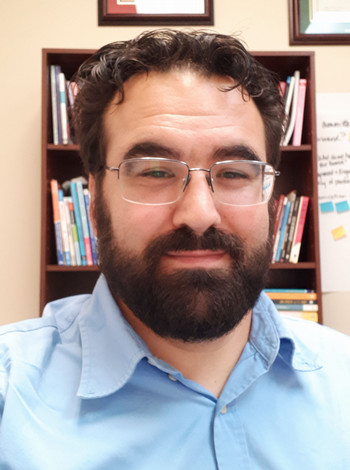SGS Celebrates Graduate Student Winners of Federal Tri-Council Awards - Chris Ryan
Author: Andrea
Posted on Mar 26, 2025
Category: Student Stories , News and Events

Profile of: Chris Ryan
Award Received: SSHRC Post-Graduate Scholarship - Doctoral
Awarded for the project: Exploring education innovation through institutional studies and applied neurocognition
Department: Interdisciplinary Studies
Supervisor: Dr. Jonathon Edwards
As our society continues to evolve, there is pressure on public schools around the world to change and adapt. One of the big challenges with this change is that educators have a good sense of what we want changes need to happen but there is no clear pathway or how to implement that change.
I do interdisciplinary research that is focused on the how of this change. Interdisciplinary research tends to be really well placed to help solve problems and this is what I am trying to do in my work. While I am exploring change in education, I am really focused on bringing together two other disciplines to help guide both my research and educators that are trying to make changes.
The first discipline I use to look at education is institutional studies and, in particular, institutional work. I am trying to understand how the work of educators changes as they design new programs, pedagogies, and schools. The second discipline I use to better understand education is adolescent neurocognition – how teenagers take in, process, and use information they are learning. I have created a survey that educators can use to see if new programs they design align with the best practices from neurocognition.
To do this research I have traveled to ten case sites that are doing education differently. This includes five cases in New Brunswick and five cases outside of New Brunswick. At some of these sites, students are given credit for starting their own business that solve community problems. At one site, students have complete autonomy over their schedule. At another, a graduate program, there are no grades and learning is personalized based on starting knowledge and interest. The initial results show that the work of educators is changing as educators are acting more as community builders, mentors, and researchers than in previous models of education. Additionally, I am applying the assessment tool to a sample of the cases and the results are promising. Many of the innovations that educators are creating and having the greatest success are aligned with what we know is good for teenage brains.
I hope that my research can be used by future educators, designers, and policy makers, to imagine public education that better meets the needs of our future citizens.
